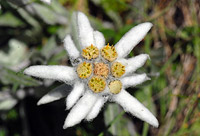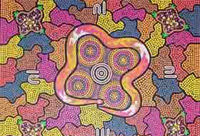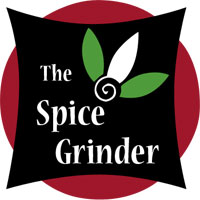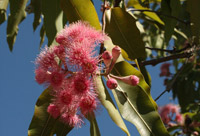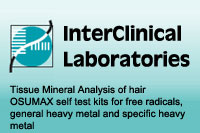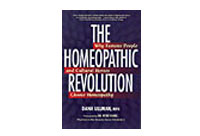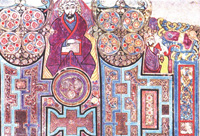It is taken that you have read our Disclaimer and Privacy Policy on entering this website
"Everyone has the right to freedom of opinion and expression; this right includes freedom to hold opinions without interference and to seek, receive and impart information and ideas through any media and regardless of frontiers"
Article 19 UN Declaration of Human Rights to which Australia is a signatory
Efficacy, Effectiveness and Mode of Action of Homeopathic Interventions - Current State of Knowledge
A Report on the Lecture by Dr Stephan Baumgartner
Sept 9, 2011 - the Brisbane, Queensland campus of the Endeavor College of Natural Health.
Dr Stephan Baumgartner is a Ph.D in physical science, a lecturer at the Institute of Complementary Medicine KIKOM at the University of Bern, Switzerland. He is also a senior researcher with the Society of Cancer Research Switzerland.
“Why should homeopathy not make sense in the light of science?” Dr Baumgartner reviewed the growing body of quantitative data on the efficacy of homeopathic medicine and prophylaxis (preventative measures) against disease.
Dr. Baumgartner led the attendees of the Endeavor conference through a meta-analysis of published data on doubleblinded Randomized Controlled Trials (RCT) which compared homeopathy to placebo. He discussed the issues of how to quantify the effect of homeopathic medicine. He also examined the issue of medicine selection for trial: the remedy for a specific condition or homeopathics prescribed on health profile itself, that is the classical approach.
The value of Dr Baumgartner's analysis is that he has selected studies in which both types of remedy selection has been trialed.
These are the following RCT studies in which the effect of homeopathic medicine was measured to be higher than placebo.
The trials were conducted on the following medical conditions.
Post operative ileus
Barnes, J, Resch KL, Ernst E (1997) “Homeopathy for postoperative ileus?” A meta-analysis. J Clin Gastroenterol 25:628-633.
Allergic rhinitis
Ludtke R, Wiesenauer M (1997) Eine Metaanalyse der homoopathischen Behandlung der Polinosis met Galphimia glauca. Wiener Medizinishce Wochenschrift 147:323-327.
NB – Dr Baumgartner translated the conclusions of this study for the benefit of the conference.
Allergic complaints
Taylor MA, Reilly D, Llewellyn-Jones RH, McSharry C, Aitchison TC (2000) Randomised controlled trial of homoeopathy versus placebo in perennial allergic rhinitis with overview of four trial series. British Medical Journal 321:471-476.
Rheumatic disorders
Jonas WB, Linde K, Ramirez G, (2000) Homeopathy and rheumatic disease. Rhem Dis Clin North Am 26: 117-123.
Diarrhea
Jacobs J, Jonas WB, Himenez-Perez M, Crothers D (2003) Homeopathy for childhood diarrhea: combined results and metaanalysis from three randomized, controlled clinical trials. Pediatr Infact Dis J 22:229-234.
Influenza
Vickers, AJ, Smith C (2009) Homoeopathic Oscillococcinum for preventing and treating influenza and influenza-like syndromes (Cochrane Review) The Cochrane Library.
Additionally, he reviewed several studies on ADHD where classical and complex homeopathy had performed as well as placebo.
In Dr Baumgartner's discussion of meta-analysis, he concluded that the RCT is the optimal way to quantify individualized homeopathic effect and compare it to other medicines. His discussion covered the many considerations to be made in designing an RCT that would yield meaningful results.
In addition to the use of the RCT to demonstrate and quantify the effects of homeopathic medicine, Dr. Baumgartner also reviewed basic research with bioassays in toxicology.
In this section of his lecture, Dr Baumgartner discussed some of his own research.
One experiment involved duckweek posisoned with arsenic. The method of the the study was to treat the duckweed poisoned with arsenic with a homeopathic preparation of arsenicum album and to measure the recovery of the poisoned duckweed.
Dr Baumgartner reviewed a number of these studies using Lemna gibba L. as a test organism for homeopathic potencies. Two are given below.
Jager T, Scherr C, Simon M, Heusser P, Baumgartner S (2010) Effects of homeopathic arsenicum album, nosode, and gibberellic acid preparations on the growth rate of arsenic impaired duckweek (Lemna gibba L.). Scientific World Journal 10: 2112-2129.
Jager T, Scherr C, Simon M, Heusser P, Baumgartner S (2011) Development of a Test System for Homeopathic Preparations Using Impaired Duckweed (Lemna gibba L.) J. Altern Complement Med 17:315-323.
These studies and the studies on mortality reduction after application homeopathic mercury on mice poisoned with mercury are very promising studies for the use of homeopathic medicine to induce the detoxification of heavy metals. The latter work in progress measures the rate of homeopathic induced detoxification in the urine samples of the mice.
The Ironbark Homeopathy E-Journal will be following Dr Stephan Baumgartner's research at the Institute of Complementary Medicine KIKOM at the University of Bern, Switzerland.

The Hahnemann Monument in Washington DC

